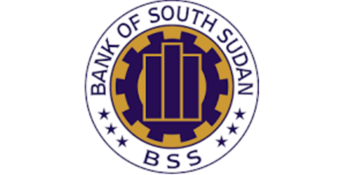Central Bank increases interest rate to stabilize prices, check inflation

The newly appointed governor of the Bank of South Sudan (BOSS), Dier Tong Ngor, has announced that the monetary institution has increased its interest rate to 15 percent as one of the measures taken to address runaway inflation in the country.
The measures were discussed at an extraordinary meeting convened yesterday at the backdrop of the rapid depreciation of the South Sudanese Pound (SSP) and the prevailing spiraling inflation. The meeting was chaired by Tong who is a former governor of the same institution from May 2018 to January of this year. He was reappointed on Monday, this week.
“The Monetary Policy Committee (MPC) of the central bank noted that the economy is severely battered and shocked due to external factors like COVID-19 and also the low prices of oil in the international market which led to considerable fiscal imbalances in the country and also which constrained the performance of the financial sector particularly the banking sector,” Tong Ngor said.
He said the committee resolved to tighten the monetary policy stance and this is aimed at helping the BOSS mop the excess liquidity that resulted from direct borrowing from the central bank.
“To impose these new policies, we will raise the policy rate that is the interest rate of the central bank, the rate which we use when we are lending to the government or commercial banks. We will raise that rate immediately to 15 percent,” the central bank governor said. “Also we will increase the reserve requirement ratio that is by law imposed on the deposit of commercial banks to 20 percent.”
“We are increasing the cash ratio. That is the ratio of cash liquidity that needs to be kept by banks in their vaults to meet the demands of their depositors’. We are going to increase that rate to 20 percent,” he added.
The governor said that the central bank will also urgently introduce its own (treasury) bills as a tool of liquidity management, “This will mean that the central bank will have its bills that we will sell. We can also buy those bills back when we want to inject more liquidity in the market.”
“The bank will step up its supervisory role by continuously monitoring the cash involved of the commercial banks. We know that commercial banks also keep cash in their vaults and the cash has to be used in a way that supports the economy,” he added. “These are the immediate measures that we are taking as a monetary policy but we will also work very closely with the ministry of finance and other partners to ensure that we address the broader macroeconomic situations.”
In August, the former governor of the central bank, Jamal Wani, told the press that the top bank did not have enough foreign reserves as it used to due to low revenue collections and conditions created by the coronavirus pandemic.
The minister of trade and industry had also earlier told a select parliamentary committee that the bank was unable to regulate operations of commercial banks because of a huge debt it owes them.
Kuol Athian revealed that Equity, Ivory, KCB, Ecobank, and Cooperative Bank demand about $92 million from the central bank.
In October, the government announced plans to inject hard currency into the market through the central bank and other commercial banks to control a run against the pound and stabilize commodity prices.